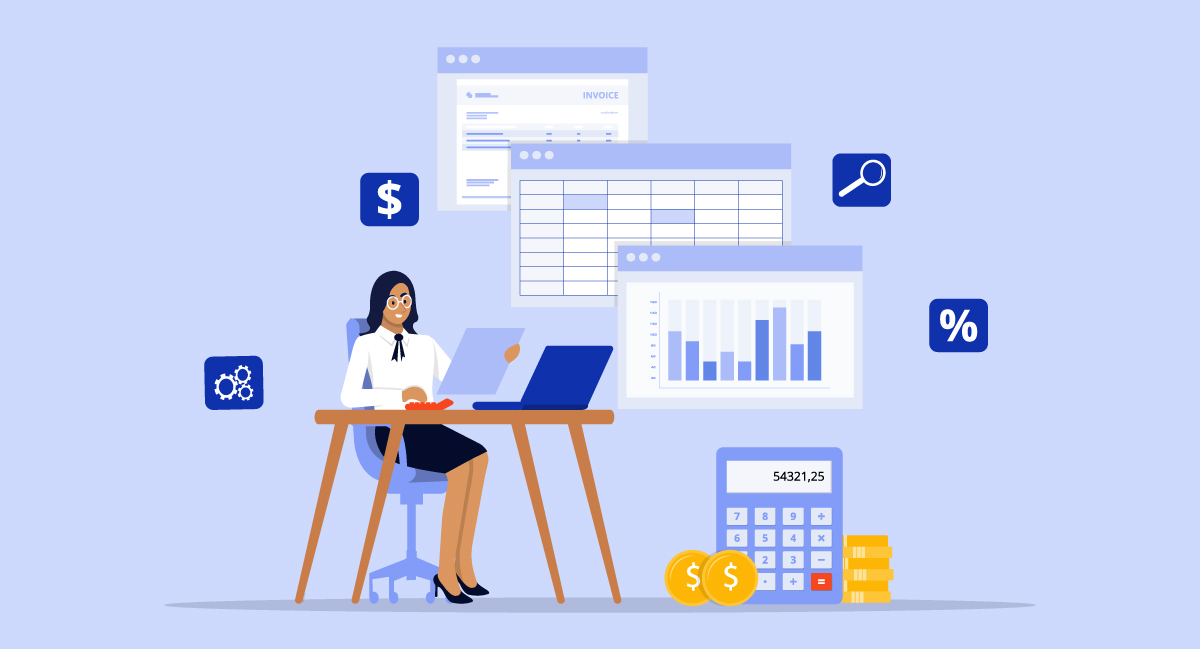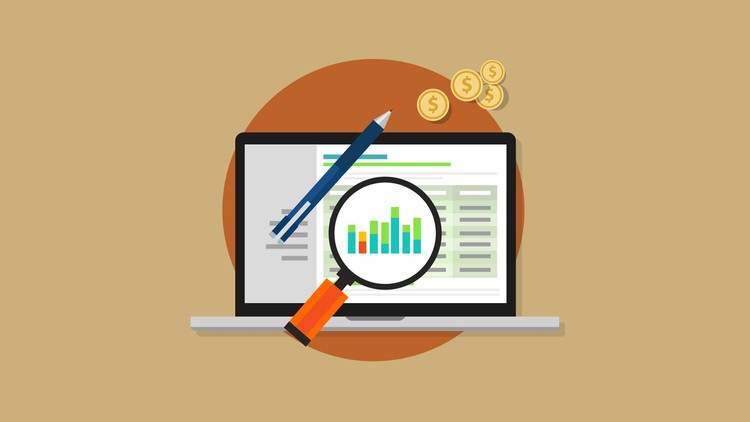Why Your Business Needs Accounting Software Now More Than Ever
Those days are long gone when Accountants used to spend their time going through piles of ledger. But, in current times, even the smallest Accounting organizations own an accounting software. These softwares have become essential business tools for an accounts firm and are the modern accounting solutions. There are several accounting software benefits which are covered in this blog. It was overwhelming when employees used to manually process every financial transaction at the end of the month. But these Accounting Softwares are the remedies for business financial management. This softwares handles bookkeeping and accounting and stores all the financial information.
The business landscape is rapidly changing. So, efficient financial management is not just an option. It is now a necessity for survival and growth. Several Accounting Software are now the most essential business tools to revolutionize businesses handling finances. The blog from trusted10.io will help you to delve into the myriad of accounting software benefits. It will also cover why using these modern accounting solutions is essential for businesses and its growth.

Why is Real-Time Financial Data a Big Deal Now?
The need for real-time financial data is a big deal as companies have to make quick decisions. Having up-to-date financial information helps them make decisions quickly and wisely.
- Businesses must know how they're doing now, not just at the end of the month, if they want to beat the others. Data that is updated in real time lets them see right away what is working and what isn't.
- Always knowing where your money is helps businesses make better use of it. They can inform themselves if they're spending too much or if they have enough money to buy new things.
- Companies that understand their money well can make sure they have the goods that customers want and can quickly fill orders, which makes customers pleased.
- With up-to-date financial information, businesses can fix problems as they arise, avoiding unpleasant shocks at the end of the month. This is a lot less stressful.
Overall, the business world has transformed significantly; it is now very important to stay up to date on current financial information in order to be successful and avoid stress.
Why Does Business Need Accounting Software?
Accounting software is now an important part of any business. It makes jobs related to managing money easier and more streamlined, which helps companies keep good financial records. Many businesses can't run their finances without accounting software. Here are some of the main reasons why business needs Accounting Software:
Time Efficiency:
One great thing about accounting software is that it can save you time. It takes care of boring tasks like data entry, billing, and payment automatically, which gives you more time to do other important business tasks.
- Automation of Tasks: Automates routine tasks like billing, payroll, and other accounting operations, saving time and effort.
- Streamlined Processes: Integrates various financial processes into a single system, reducing the time spent on managing separate systems.
- Faster Data Retrieval: Allows quick access to financial data, enabling swift response to business queries and analysis.
- Ease of Use: User-friendly interfaces and functionalities that simplify complex processes, making accounting tasks quicker and less daunting.
Enhanced Accuracy:
Financial info is much less likely to be wrong when calculations are done automatically. This makes sure that the financial management of your business is built on correct and solid data, which helps you make better choices.
- Minimizes Errors: Manual data entry increases the risk of errors; accounting software automates calculations, reducing the chance of mistakes.
- Consistent Data Entry: It ensures data consistency and accuracy, as all financial information follows a uniform format.
- Audit Trails: The software keeps detailed records of all transactions, providing a clear audit trail which helps in identifying and correcting errors.
- Accurate Financial Reports: Generates precise and reliable financial reports, which are crucial for making informed business decisions.
Real-Time Financial Monitoring:
One benefit of financial software for businesses is that it lets them view financial data in real time. This means you can always see the most up-to-date picture of your finances, which helps you make quick, smart choices.
- Instant Access to Data: Provides real-time access to financial data, allowing for immediate analysis and decision-making.
- Dashboard Overviews: Offers dashboards that display key financial indicators and trends at a glance.
- Alerts and Notifications: Sends alerts for any financial anomalies or thresholds reached, enabling proactive management.
- Better Cash Flow Management: Helps track and manage cash flow in real-time, crucial for maintaining the financial health of the business.
Cost Reduction:
Accounting software cuts down on the need for a big accounting team by streamlining and automating financial tasks. This lowers the cost of running your business. It also helps avoid expensive financial mistakes because it is accurate.
- Reduces Paperwork: Digitizes financial records, significantly reducing the need for paper, storage space, and associated costs.
- Less Dependency on External Accountants: While professional advice is always valuable, accounting software reduces the need for routine external consultation.
- Energy and Resource Savings: Decreases the energy and resources spent on manual accounting and data management tasks.
- Efficient Resource Allocation: Enables businesses to allocate resources more effectively, diverting savings to other critical areas of the business.
Enhanced Security:
It is very important to keep sensitive financial info safe. Accounting software has strong security features, like encryption and safe data storage, to keep your financial information safe from people who shouldn't have access to it or from data breaches.
- Data Encryption: Provides robust security features such as data encryption to protect sensitive financial information.
- User Access Controls: Allows setting different access levels for users to safeguard against internal fraud and unauthorized access.
- Secure Data Backup: Automatically backs up data to prevent loss due to hardware failure or security breaches.
- Compliance with Standards: Ensures compliance with financial data security standards and regulations.
Scalability:
Keeping up with tax and financial rules is a difficult but necessary part of having a business. Accounting software is regularly updated to include the most recent changes to tax rates and rules, which makes following the rules easy.
- Adapts to Growth: Easily scales up to handle increased transactions as the business grows without compromising performance.
- Modular Design: Many accounting software solutions offer modules that can be added as needed, making it customizable to changing business needs.
- Integration Capabilities: Seamlessly integrates with other business software, supporting an expanding suite of services.
- Supports Multiple Users: Allows more users to be added to the system as the company grows, facilitating collaboration across departments.
Tax Compliance:
The software can easily figure out how much tax you owe and make the reports you need to file your taxes. This makes the complicated and time-consuming process of preparing your taxes easier.
- Automatic Tax Updates: Regularly updates tax rates and regulations, ensuring compliance with current laws.
- Detailed Record Keeping: Maintains detailed records that are essential for tax filing and audits, reducing compliance-related issues.
- Tax Reporting Features: Automates tax reporting, making it easier to prepare and submit tax returns accurately and on time.
- Deduction Tracking: Helps track and calculate deductions accurately, maximizing potential tax savings.
Simplifying the Auditing Process:
Accounting software makes it easy to make detailed financial records. These reports give you useful information about how your business is doing financially, which helps you make plans for the future.
- Centralized Documentation: Keeps all financial transactions and documents in one place, simplifying access during audits.
- Audit Trail Features: Provides clear and detailed audit trails that help trace any financial activity systematically.
- Compliance Checks: Regularly checks for compliance with accounting standards and practices, ensuring readiness for audits.
- Real-Time Reporting: Generates reports in real-time, offering auditors up-to-date financial statements at any point.
Simplifying Inventory Tracking:
Accounting software helps you better handle your cash flow with features like billing and invoicing. It makes sure that you bill your customers on time and pay your bills correctly, which keeps your cash flow healthy.
- Automated Stock Monitoring: Tracks inventory levels in real time, updating automatically as sales are made and stock is replenished.
- Integration with Sales: Integrates with sales data to provide a comprehensive view of inventory status, preventing overstocking or stockouts.
- Historical Data Analysis: Helps analyze historical inventory trends to predict future needs more accurately.
- Barcode Scanning: Facilitates the use of barcode scanning for quick inventory checks and updates.
As your business grows, so will its needs for managing its money. So, accounting software is flexible, which means it can easily add new users, features, or connections to other systems so it can grow with your business. If you want to run your business's finances quickly and effectively, using accounting software is more than just a convenience. Businesses can stay flexible and competitive in a market that moves quickly thanks to this technology.

Invest in Accounting Software for Successful Business
Another major reason that enables businesses to use accounting software is more competition and better technology. These things are very important for understanding why businesses need to change in order to stay competitive and effective, especially by using current tools such as accounting software. These days, with globalization and the rise of technology, companies have more competitors than ever, and they come from all over the world.
With these technological capabilities at hand, stakeholders now expect a level of speed and precision that was previously unattainable. Investors, regulators, and partners all demand rapid access to accurate financial reports to make timely decisions. Accounting software not only meets these high expectations but also ensures that businesses can uphold the highest standards of financial integrity and transparency. Here’s how accounting software plays a vital role in major business firms:
- Streamlining Operations: Accounting software automates many of the tedious, time-consuming tasks associated with financial management, from payroll processing to invoice generation. This automation frees up resources, allowing companies to focus more on strategic activities like market expansion and customer engagement.
- Enhanced Decision-Making: With real-time data at their fingertips, businesses can make faster, more informed decisions. This quick adaptability is crucial in a competitive market where opportunities and risks arise swiftly.
- Cost Efficiency: Minimizing costs is more critical than ever in a competitive landscape. Accounting software helps reduce overhead by decreasing the need for extensive manual labor and reducing errors, which can be costly to rectify.
- Speed and Efficiency: Modern accounting systems are designed to handle vast amounts of data swiftly, enabling businesses to perform complex calculations and generate detailed reports much faster than traditional methods. This speed is crucial for timely decision-making and maintaining a competitive edge.
- Accuracy and Reliability: Advanced algorithms and data-processing technologies ensure that financial reporting is accurate, which is vital for maintaining compliance and trust with stakeholders. Accurate data is the backbone of solid business decisions and strategic planning.
- Integration with Other Systems: Today’s accounting software often integrates seamlessly with other business systems (like CRM and ERP), providing a holistic view of a company’s operations. This integration enables more precise forecasts and strategic insights, enhancing overall business intelligence.
Conclusion
In a world where business dynamics are constantly evolving, the adoption of accounting software has transitioned from being a luxury to an absolute necessity. The myriad of benefits it offers makes it clear why this tool is indispensable for business success today. Accounting software not only streamlines financial operations but also provides a bedrock of stability for strategic decision-making. By automating routine tasks, it frees up valuable time for businesses to focus on growth and innovation, ensuring that resources are allocated efficiently and wisely.
Moreover, the real-time financial insights offered by such software are invaluable. They allow businesses to respond swiftly to market changes, seize opportunities, and mitigate risks before they become unmanageable. This agility is crucial in maintaining a competitive edge in the fast-paced business environment. Additionally, the enhanced accuracy and compliance features of accounting software reduce the risk of costly errors and legal penalties, safeguarding the business’s reputation and financial health.
For more information on financial software for businesses, read other blogs of trusted10.io. As we believe, integrating accounting software into the daily operations of a business is not merely a step towards digital transformation but a stride towards securing a prosperous and sustainable future.










